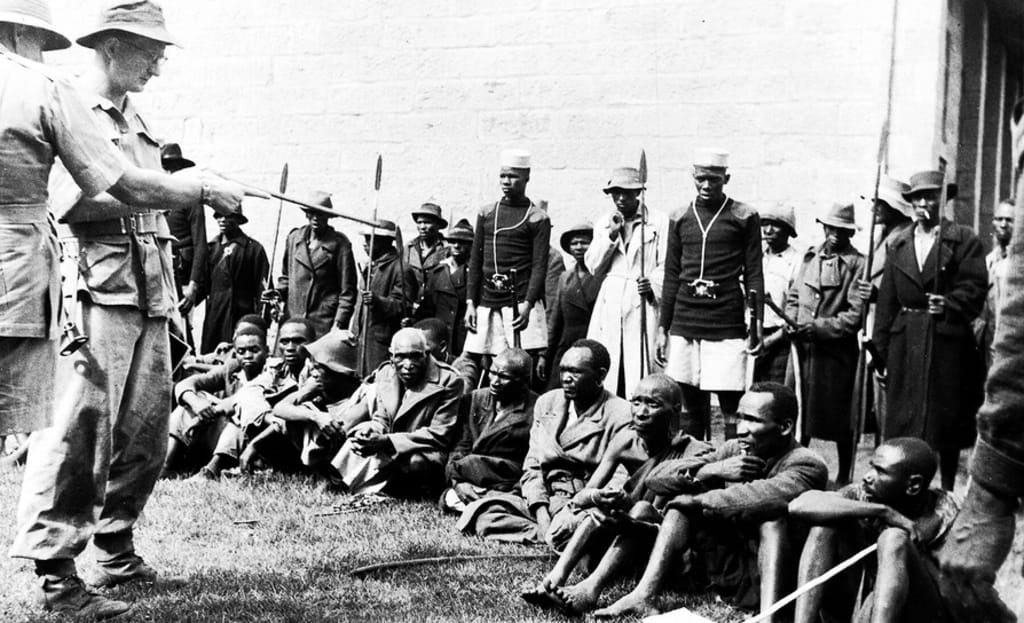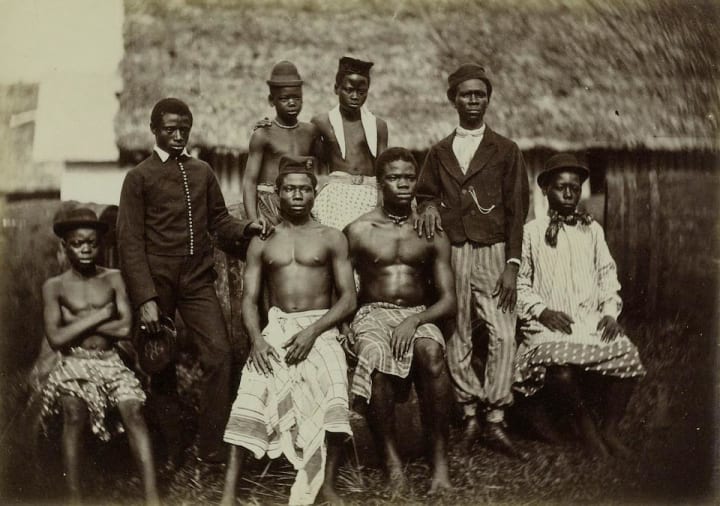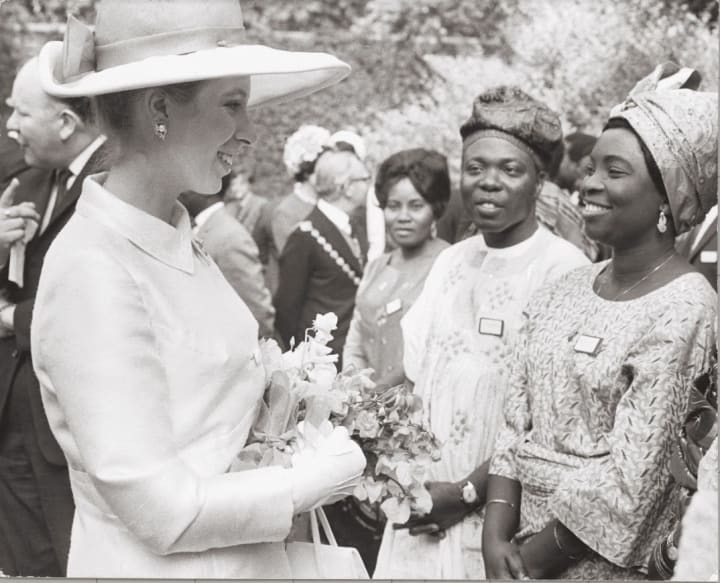
The Legacy of Colonization in Nigeria: A Complex Narrative Unraveled
Nigeria, a nation of rich cultural heritage and diverse ethnicities, bears the scars of a tumultuous past marked by colonization. The story of Nigeria's colonization is a complex narrative that continues to shape the country's socio-political landscape to this day.
The colonization of Nigeria began in the late 19th century, as European powers vied for dominance in Africa during the period known as the Scramble for Africa. The British Empire, motivated by economic interests and the desire to expand its colonial holdings, gradually established control over various regions of present-day Nigeria.
Under British colonial rule, Nigeria was amalgamated into a single entity in 1914, bringing together diverse ethnic groups and cultures under one administrative umbrella. The British implemented a system of indirect rule, appointing local chiefs and traditional rulers as intermediaries to govern on behalf of the colonial administration.
While British rule brought about infrastructural development and introduced Western education and governance systems, it also fostered a hierarchical structure that marginalized certain ethnic groups and reinforced divisions within Nigerian society.
Colonization had a profound impact on Nigeria's cultural identity. The imposition of British

policies and institutions disrupted traditional socio-political structures and undermined indigenous systems of governance. This eroded cultural practices and identities, leading to a loss of heritage among many Nigerian communities.
Furthermore, the introduction of Christianity by British missionaries and the imposition of Western values and norms contributed to a gradual erosion of traditional beliefs and practices, sparking tensions between indigenous cultures and the forces of modernity.
Economically, Nigeria was exploited for its natural resources, particularly palm oil, rubber, and later, petroleum. The British colonial administration implemented policies that favored the extraction and export of these resources to meet the needs of the colonial metropole, leading to the neglect of local industries and the impoverishment of many Nigerians.
Additionally, the British imposed a tax system that further burdened local populations, leading to widespread discontent and resistance against colonial rule.
The strategy of divide and rule employed by the British colonial administration exacerbated ethnic and religious tensions in Nigeria. The creation of artificial boundaries and the manipulation of ethnic rivalries to maintain control sowed the seeds of discord that continue to plague the country to this day.
The legacy of colonialism can be seen in Nigeria's persistent ethnic and religious conflicts, as well as the uneven distribution of resources and opportunities along ethnic lines.
Despite the challenges posed by colonization, Nigeria's journey to independence was marked by a burgeoning nationalist movement that sought to challenge colonial rule and assert self-determination. Leaders such as Nnamdi Azikiwe, Obafemi Awolowo, and Ahmadu Bello played pivotal roles in mobilizing support for independence and laying the groundwork for a post-colonial Nigeria.
Following independence in 1960, Nigeria faced a myriad of challenges as it sought to forge a unified national identity and address the legacies of colonialism. The country grappled with issues of political instability, corruption, ethnic rivalries, and economic inequality, all of which were exacerbated by the enduring impact of colonial rule.
The colonization of Nigeria by the British Empire left an indelible mark on the country's history and continues to shape its socio-political landscape. While colonization brought about infrastructural development and introduced Western education and governance systems, it also fostered divisions, exploited natural resources, and eroded indigenous cultures.
The intricate tapestry of Nigeria's post-colonial narrative is woven with the threads of resilience, identity, and the pursuit of a shared destiny. The colonial era, characterized by British dominance, has left an enduring imprint on the nation's fabric, shaping not only its physical infrastructure but also the very essence of its societal dynamics.
The impact of colonization extended beyond the tangible realms of roads and institutions. It infiltrated the collective consciousness of Nigerians, introducing a complex interplay of cultural transformation and identity redefinition. The erasure of traditional governance systems and the imposition of Western structures disrupted the organic flow of indigenous cultures, leaving behind a nuanced legacy of adaptation and resistance.
In the realm of economics, the exploitation of Nigeria's abundant natural resources by the British Empire echoes through the corridors of time. The extraction of palm oil, rubber, and later, petroleum, became emblematic of a skewed economic relationship, where the metropole benefited at the expense of the colony. The scars of economic exploitation are still visible in the persistent challenges of resource mismanagement and economic inequality that Nigeria grapples with today.

The strategy of "divide and rule," meticulously employed by the colonial administration, was akin to planting seeds of discord that would later blossom into the ethnic and religious tensions that persist. The arbitrary drawing of borders and the manipulation of ethnic rivalries set the stage for post-colonial challenges, fostering an environment where communal identities often took precedence over a unified national consciousness.
The path to independence in 1960 marked a watershed moment in Nigeria's history, as the nation embarked on the arduous journey of self-governance. Visionary leaders emerged, navigating the complexities of a newly independent nation with aspirations of unity and progress. However, the shadows of colonialism lingered, casting a pall over the nascent state.
As Nigeria moved into the post-colonial era, the challenges inherited from its colonial past manifested in various forms. Political instability, corruption, and economic disparities posed formidable hurdles on the road to national cohesion. The echoes of colonial exploitation reverberated in struggles for resource allocation, with different regions grappling for a fair share of the national wealth.
The call for national cohesion and development became a rallying cry, echoing through the halls of government and resonating with the aspirations of a diverse populace. Reckoning with the legacies of colonialism emerged as an imperative step for Nigeria to transcend the shadows of its history. The process of building a society that embraces its cultural diversity while fostering unity and progress became not only a national mission but a poignant testament to the resilience of the Nigerian spirit.
Confronting the colonial past necessitates introspection and collective acknowledgment of the historical forces that have shaped the nation. It involves navigating the intricate intersections of tradition and modernity, forging a narrative that honors the roots of indigenous cultures while embracing the possibilities of a shared future. The journey towards reconciliation with the past is a complex odyssey, demanding a nuanced understanding of the multifaceted impacts of colonization.
In this ongoing narrative, Nigeria stands at a crossroads, where the lessons of history converge with the aspirations of its people. The forging of a future that honors the struggles and triumphs of the past requires a steadfast commitment to dismantling the vestiges of colonial influence and fostering a society where the richness of cultural diversity becomes a wellspring of strength.
As Nigeria grapples with the complexities of its post-colonial identity, it embarks on a quest for a future that transcends the shadows of the past. The aspirations of the Nigerian people, rooted in a profound sense of heritage and resilience, become the guiding force towards a destiny that reflects the true essence of the nation. The journey towards national cohesion and development unfolds as a dynamic narrative, where each chapter is an opportunity to redefine, rediscover, and reaffirm the unique tapestry that is Nigeria.
About the Creator
Kelechi
Dive into worlds where reality and nightmare entwine, where whispers echo truths and shadows breathe. Unveil the mysteries that linger Beyond the Veil – each story a portal to the extraordinary. Are you ready to be captivated?






Comments
There are no comments for this story
Be the first to respond and start the conversation.